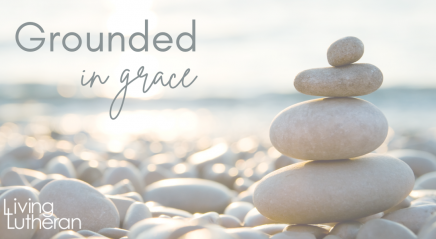Do not remember the former things, or consider the things of old. I am about to do a new thing; now it springs forth, do you not perceive it? I will make a way in the wilderness and rivers in the desert (Isaiah 43:18-19).
Recently I learned about a church fire where, due to the combination of fire, smoke and water damage, most of the building was destroyed. The congregation was understandably traumatized. Their beloved place of worship, fellowship, learning and service had been annihilated, reduced to charred remains. Over the weeks and months that followed, they worked through the immediate logistical steps. What irreplaceable items were lost? Where do we worship now? How does our insurance policy cover this loss?
As this congregation moved toward the hopeful steps of rebuilding, the time came for the leaders to decide what the new worship space would look like. This congregation faced an opportunity to renovate and step into new beginnings for their worship life together. What happened? They chose to use the exact same layout of the previous sanctuary for the new construction, despite knowing its shortcomings.
Beloveds, I hope you never face the tragedy of losing your building to a fire. But perhaps this situation provides us with a way to think about how we’re all being called to rebuild. Our congregations have been through a destructive force—not a literal fire for most of us but the rubble of more than two years of dealing with the pandemic. Some of us are yearning to get back to business as usual as we work through the trauma of COVID-19 and the political issues surrounding it.
We may feel the deep pull to return to what is most familiar, most known, most comfortable. But instead of following the impulse to do everything like we did before, what if we opened our imaginations to what God might be calling us to do, even if it’s unfamiliar or uncomfortable?
After a church fire, the congregation chose to use the exact same layout of the previous sanctuary for the new construction, despite knowing its shortcomings.
If we make the decision to just rebuild like we were before, we might miss opportunities to venture into new ministries, new worship forms, new relationships and new avenues of faith formation. All the while we can hope and trust that God is calling us to a new thing. These changes won’t be easy, especially given the many challenges we have all faced during this time.
We can choose to embark upon these new beginnings with hope and trust that God is calling us to something new, or we can return to what we know and try holding fast to our nostalgia that tempts us to keep our eyes focused on the past—the way things were before, the proverbial good ol’ days.
Beloveds, we all deal with ashes. Painful as it is, they are an inevitable part of the human condition. “Ashes to ashes, dust to dust . . .” has been spoken at countless gravesites. Are we ready to ask the difficult questions? What should be left in our congregational ashes? What should be left in our personal ashes? What can we leave behind? What should we leave behind? What must we leave be behind?
It’s understandable if we aren’t ready to leave our precious mementos in the ashes. However, when we refuse to leave the ashes, we run the risk of preventing a deep connection with the “new thing” that God has promised to do. Be encouraged. You’re created in God’s image to dream, explore and try new things.
I found inspiration in the hymn “When It Seems the Day Will End” from All Creation Sings (1034), and I pray you do too:
When it seems the day will end, and all light gives way to fear, we will speak your name again to remind us you are here. New life rising (new life rising), ashes falling (ashes falling), joy and weeping (joy and weeping), in your calling (in your calling).
Lutheran theology offers a “both/and” approach. We can simultaneously mourn what was lost and be hopeful of what can be. We can always carry our memories while also looking forward to God’s promised future—the future from holy ashes. As we hold these feelings in tension, we can rest assured that God holds us always and grace abounds for us all. Hallelujah!






